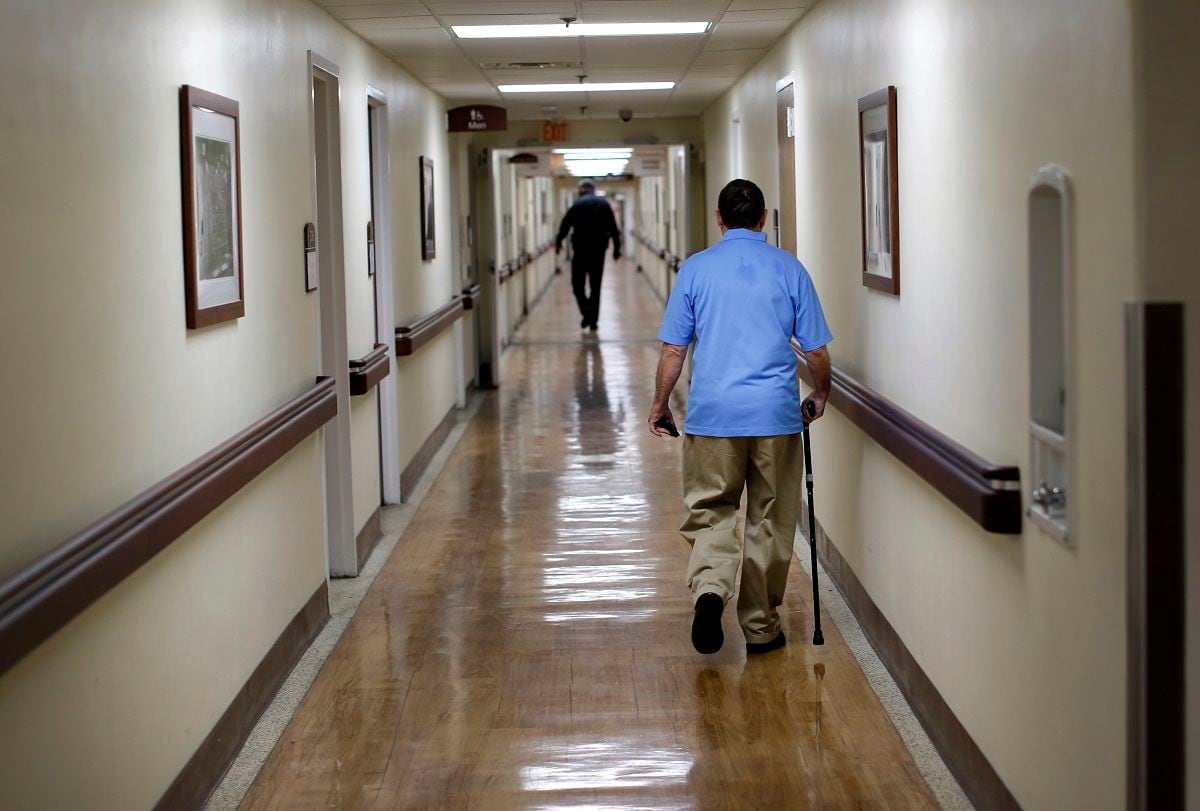Veterans Affairs Secretary Robert Wilkie is approaching next Friday as “just another day at VA” and not potentially one of the most transformative and disruptive moments for the veterans health system in decades.
On June 6, hundreds of thousands of veterans enrolled in VA health care will be eligible for new expanded community care rules, allowing them to seek private-sector medical care at taxpayer expense. The moment has been a year in the making, and brought with it significant concerns from veterans groups who fear the massive rules shift could ultimately undermine existing VA services.
“We do expect to be ready,” he said during an appearance on C-SPAN’s Newsmakers program on Friday, calling the deadline a significant moment for his department but not one that will bring chaotic changes to core VA operations. “I’m confident that our team is ready across the country … (Most veterans) are not going to experience a great change.”
RELATED

At issue is the Mission Act, a focal point of President Donald Trump’s reform plan for the sprawling veterans administration. The legislation — passed by a wide bipartisan vote in Congress last summer — mandates a review of department facilities, an overhaul of the department’s caregiver stipend, and the community care changes.
That last section has been Wilkie’s main focus for the past year, even before he was confirmed for the top VA job (he worked as acting secretary for several weeks before his nomination).
But after months of build up and controversies, Wilkie’s approach in recent days to the dramatic rule changes has been a sharp contrast to the commander-in-chief’s proclamations. The VA secretary insists it is a transformational moment, but also one that won’t turn operations at VA upside down.
“The premise has been we’re in the process of privatizing the institution,” Wilkie said on the program, in response to a question from Military Times. “Well, I’ve had the honor of presenting the largest budget in the history of VA to Congress in the last few months. $220 billion. I am a pariah in the Cabinet room because I am the only one who didn’t have to find budget cuts.
“The budget also calls for 390,000 employees. We’re not in a pathway to privatization. If we are, we’re doing it in a strange way.”
Under the changes, Veterans who live more than 30 minutes from a Veterans Affairs medical clinic or face a wait of more than 20 days for most health care appointments would be eligible for expanded community care programs. Wilkie and VA officials argue those standards fall in line with military health care and private sector benchmarks
The updated standards would replace the 40-mile, 30-day guidelines currently in place for most veterans. For specialty care, veterans would have a 60-minute-drive or 28-day wait standard.
About one-third of all VA medical appointments are currently handled outside the department’s health care system now, a figure that has decreased in recent years. Wilkie and senior department officials have cited that as likely evidence the new changes won’t create a spike in outside care use, since most veterans are happy with their current care.
But the VA in recent weeks mailed information to 9.5 million patients in the system to inform them of the coming “improvements” to department programs and the community care program. About 8 percent of that population is eligible for the non-VA medical appointments now, and up to 40 percent will be eligible after next week’s changes.
Critics fear a mass exodus of patients — and money — from a VA health system they insist has improved in recent years, and houses veteran-specific medical knowledge that much of the private sector lacks.
RELATED

Senior department officials have promised that if the usage of the outside care program does increase beyond department estimates, they won’t raid other VA medical accounts to cover the cost. But they will have to ask Congress for additional funding, even as some lawmakers question the size and scope of the $200-billion-plus fiscal 2020 budget request.
For now, Wilkie isn’t concerned about that possibility. He said during the interview that he has confidence in VA’s staff’s ability to communicate the changes to patients, help them choose the best health options in their individual cases, and make sure private-care providers are paid promptly.
“The Choice act had seven different payment systems,” he said. “This creates one standard so everybody knows it...
“We have made clear to veterans, when they have a concern, come to us. We’ll explain.”
He’s expecting more of those calls next week. Wilkie said he expects some minor problems with the roll-out given the size and scope of the veteran patient population, but he is also confident those won’t amount to serious disruptions.
The full C-SPAN interview will air Friday evening and throughout the weekend.
Leo covers Congress, Veterans Affairs and the White House for Military Times. He has covered Washington, D.C. since 2004, focusing on military personnel and veterans policies. His work has earned numerous honors, including a 2009 Polk award, a 2010 National Headliner Award, the IAVA Leadership in Journalism award and the VFW News Media award.




